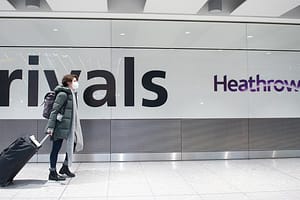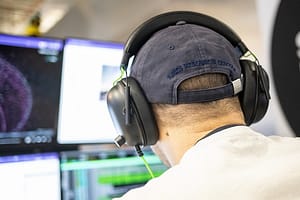Travelling abroad has been more complicated than usual for the last couple of years. The spectre of COVID-19 has loomed large over everything. South Korea is one of the countries that has maintained strict rules about who can enter. For periods of the pandemic, there was a near-total travel ban to the Republic.
Thankfully, things seem to be returning to normality. Many countries are reducing their travel restrictions or even lifting them completely. This is great news for Brits planning trips overseas.
However, each country has a different set of rules that you need to know. For example, if you’re planning to fly to South Korea in the near future, there are a few details you should bear in mind while preparing for your trip.
Here’s everything you need to know before you set off to South Korea from the UK.
Register online for a travel authorisation
The first and most important thing to remember is that if you’re flying to South Korea on a British passport, you don’t have to get a visa. However, you do have to get an ETA Korea for UK citizens online.
Don’t worry though! This “Electronic Travel Authorization” is much simpler to get than a visa. It’s literally just a quick online form that you have to fill in on your phone or computer, and then you’re done! The ETA should come through by email within a couple of days.
It is important to remember to do this, though — the ETA is the thing that allows you to enter South Korea visa-free.
If you turn up without an ETA, you’ll be expected to have a visa. If you have neither, you won’t be getting into the country!
Take a test before flying
South Korea is one of the countries that still asks for a negative COVID-19 test result from all passengers arriving in the country.
There are plenty of different options for what type of test you can take, so it shouldn’t be too difficult to organise.
You can either take a rapid antigen test within 24 hours before your flight (or the first flight, if the journey involves changes), or one of the following types of test taken within 2 days before travelling:
- PCR
- RT-PCR
- LAMP
- NAAT
- NEAR
- SDA
- TMA
You’ll have to make sure your test result meets South Korea’s standards, too. As well as showing that you are negative for COVID-19, the test result must include the following details:
- The date the test was taken
- The issuing laboratory
- Your name
- Your date of birth and/or passport number
Your personal details on the test result must match your passport details exactly.
The test result has to be in either English or Korean, or you can bring a translation into English or Korean to present along with the original.
You’ll probably need to show the test result to board the plane and you’ll certainly be asked to show it at Korean border control when you land.
If you’re travelling with children aged 6 and under, good news! They don’t have to take a test at all.
Avoiding quarantine
South Korea still has a quarantine rule in place. Passengers arriving in the country could be asked to isolate for 7 days after landing.
However, the good news is that you might be able to avoid this. If you fall into any of the following categories, you’re exempt from having to quarantine on arrival in South Korea:
- Quarantine Exemption Certificate
- Fully vaccinated between 14 and 180 days before arriving
- Fully vaccinated and had a booster shot at least 14 days before arriving
That’s right! If you are up-to-date on your coronavirus vaccinations, there’s no need to quarantine and you can get straight on with your trip to Korea.
To be considered “fully vaccinated”, you’ll need to have had a full course (including a booster if it’s been more than 180 days since the last of the initial round of jabs) of one of the COVID-19 vaccines recognised by and approved in South Korea. These include the following:
- AstraZeneca (SK Bioscience or Vaxzevria)
- Covaxin
- Covishield
- Covovax
- Janssen
- Moderna (Spikevax)
- Nuvaxovid (Novavax)
- Pfizer-BioNTech (Comirnaty)
- Sinopharm
- Sinovac
Before setting off on your travels, you’ll have to register your vaccination status and certificate online. This will generate a QR code. Simply show this QR code at border control when you land and you’ll be allowed into South Korea with no need to quarantine.






Leave a Comment